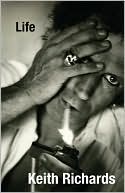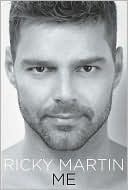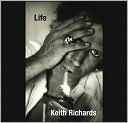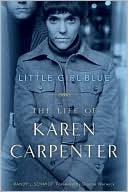No Woman No Cry: My Life with Bob Marley
Bob Marley was one of the greatest musicians of our time. While much has been written about him, here is a unique, intimate, and honest portrayal written by his wife Rita, who talks about their strugglesboth before and during his rise to fameas well as their dreams, fears, and ultimately, her husbands losing battle with cancer while at the height of his career. This stirringly honest, no-holds-barred account of life with Bob Marley reveals a different, deeper side of the beloved musician that...
Search in google:
The story of Rita Marley's life as the girlfriend, wife, and eventual widow of Bob Marley, the legend of reggae music, whose distinctive sound has been part of the world's popular culture for more than three decades. Publishers Weekly Fans of reggae legend Bob Marley will welcome this no-nonsense biography from his wife, Rita, who was also his band member, business partner, musical collaborator and the only person to have witnessed firsthand his development from local Jamaican singer to international superstar. Aided by poet and memoirist Jones (How I Became Hettie Jones), Rita presents the powerful details of her early life story: her youth in the Trench Town ghetto of Kingston, Jamaica, living with "thugs, thieves, killers, prostitutes, gamblers"; her encounters with the early "Wailing Wailers"; and how her relationship with Bob cemented as they spent days recording in Dodd's Studio One. Throughout, this memoir emphasizes Rita's own substantial musicianship, first as part of Bob Marley's backing vocalists, the I-Threes, and later her own career after his death "carrying on a legacy that means so much to the world." Those subjects provide a positive balance to unpleasant experiences such as dealing with Bob Marley's various mistresses during his life and defending herself from accusations after his death that she was financially abusing his estate. This is far from a definitive look at Bob Marley, and for a comprehensive, critical look at the singer it would be hard to compete with Timothy White's definitive Catch a Fire. But this book makes an important contribution to our understanding of Marley and Jamaican music in general. (Apr.) Copyright 2004 Reed Business Information.
Prologue\ People ask what it's like when I'm somewhere and suddenly Bob's voice comes on the radio. But the thing about Bob is so deep, it is as if he's always with me, there's always something to remind me. So I don't wait for his voice.\ And he did promise me, before he finally closed his eyes, that he'd be here. It was May 11, 1981, and the doctors said he was dying of cancer and that there was no hope. But Bob was hanging on, he wouldn't let go.\ I had put his head in my arm, and I was singing "God Will Take Care of You." But then I started to cry and said, "Bob, please, don't leave me."\ And he looked up and said, "Leave you, go where? What are you crying for? Forget crying, Rita! Just keep singing. Sing! Sing!"\ So I kept singing, and then I realized, wow, that's exactly what the song was saying: "I will never leave you, wherever you are I will be . . ."\ So if I hear his voice now, it's only confirming that he's always around, everywhere. Because you do really hear his voice wherever you go. All over the world.\ And one interesting thing about it, to me, is that most people only hear him. But I hear more, because I'm on almost all of the songs. So I also hear my voice, I also hear me.\ Chapter Two\ Who Feels It, Knows It\ Studio One had probably been a home before Coxsone bought it. He had taken down walls, but it was easy to imagine where the bedroom used to be and the kitchen and the hall. So you felt like you were at home there, because it was less like a business and more like a family affair. When anything happened, everybody got excited -- the musicians, the singers, the man outside. And the hype was, "We do a hit tune today." "We" meaning it was everybody's hit tune. We would be there for days, nights, days, but nobody complained -- it was just fun to wake up and say, "Oooh, I have studio today!"\ Coxsone had recorded some of the most successful groups in Jamaica, including the famous "Skatalites," one of the earliest ska bands. (The word "ska" comes from a certain sound made by the electric guitar.) Marcia Griffiths, who later sang with me as one of the I-Three, says that Studio One was Jamaica's Motown, "where all the great stars grew . . . like a university you graduate." A lot of times different people would be working at once; songs were being written in every corner. You couldn't help but learn if you kept your ears open. Coxsone had a guitar that he loaned to those who were too poor to buy one. Bob had that guitar most of the time.\ The backup group we eventually formed still consisted of Dream, myself, and Marlene, who would leave school in the evenings to come to Trench Town and rehearse, and whose parents thought this was the worst ambition. To leave high school to go to Trench Town, to be with those kinds of people -- the tough guys, the killers, the thieves!\ Dream was my main tootsie, my favorite cousin, my little postman, my little errand runner. As a baby, he had the most beautiful big eyes you've ever seen, and always looked as if he was dreaming -- you know that sexy dreamy look? So from an early age Constantine Anthony Walker was known as "Dream." He was only about thirteen, the baby amongst us, when we met the Wailers. They, being the Misters of Black Progress, who taught us that Black Is Beautiful and how wise it is to know yourself, decided that Dream was so much their little "buds" (buddy) that they had to change his nickname. Only old men have dreams, they insisted, but young men have visions. And so Dream became Vision. A much more youthful flavor!\ We sang behind the Wailers and sometimes behind other singers or groups who were recording. Coxsone and some others on the scene suggested we name ourselves something like the Marvelettes, an American group we'd heard, and so we became the "Soulettes." Our first big hit, with Delroy Wilson also singing background, was "I Love You, Baby." This was a big, big thrill for us. We were unknown, we weren't out there in the show business arena, and we were all still teenagers, starry-eyed amateurs.\ It was also Coxsone's suggestion that Bob train and rehearse us, and I guess by then he must have seen something happening between Bob and me.\ He was pretty handsome, I thought -- Robert Nesta Marley, Robbie to all of us then. Jamaicans would call him brown-skinned and Americans might say light-skinned. His father, Captain Norval Sinclair Marley, was an older white man, a native Jamaican who had retired from the British Army. Bob had much of his father's imprint; he was very half-black, half-white, with a high, round forehead, prominent cheekbones, and a long nose. His mother, Cedella "Ciddy" Malcolm, was seventeen when she met Norval. He was more than twice her age, and was then the superintendent for British-owned lands in the rural parish of St. Ann, where Ciddy lived. By the time she was nineteen, she'd been seduced by, married to, and then abandoned by Norval. The one time he saw his father, Bob used to say, the old man offered him a "Willy" penny (an old copper coin, thought of as a collector's item). Bob claimed he never saw Norval again.\ But like me, Bob had an extended family to raise him, at least for a while. His grandfather, Omeriah Malcolm, was a myalman, or healer, as well as a successful businessman respected in his community of Nine Miles. So it didn't surprise me that Bob, as the world would come to know, was very black conscious -- his black consciousness covered his light skin. You see him, you hear him, and he's a black man. And he was very disciplined, self-disciplined. Very real.\ At fourteen he had come from St. Ann to Kingston with his mother, to live with her and a man named Thaddius (Taddy) Livingston, who had offered her work in his bar. Ciddy had a daughter, Pearl, with Taddy, but then found out he was already married and had other women besides. Looking for a better life, she took Pearl, who was still a baby, and migrated to Wilmington, Delaware, where she had some family and friends. Bob was left in Taddy's care, but more like on his own. He told me that his mother's plan had been to send for him in three months, as soon as she was settled and could secure the necessary papers. But the papers weren't easy to get. The three months had become more than three years.\ When we met, Bob was living in an uneasy situation with Taddy Livingston, Taddy's common-law wife, and his son Neville Livingston, called Bunny, the member of the Wailers eventually known as Bunny Wailer. With his mother away, Bob lacked the kind of support and defense I got from Aunty. (One of his early songs is titled "Where Is My Mother.") Taddy's woman resented him, as the son of a woman who had had an affair with her man. One day Bob told me how fed up he was with both Taddy and this "stepmother," who wanted him to be her maid because he wasn't bringing any money to the house. For a while he had simply become an errand boy, then worked as a trainee in a welding shop, before making his first singles, "Judge Not" and then "One Cup of Coffee," on the Beverley's label. That Bob was getting some attention didn't mean he was being paid very much. No one had money then.\ At first, and maybe always, I cared for Robbie Marley from a sisterly point of view. I was that sort of person, and still am -- the responsible kind. I saw him and I said, "poor thing." It wasn't "I love him," but "poor thing." My heart went out to him. I kept thinking, oh, what a nice boy. So nice that I didn't want to let him know I had a baby -- in those days, for a teenager to be unmarried and have a baby seemed so shameful. During this time I spent many hours at Studio One, rehearsing and recording, and always managed to conceal that fact. But one day, right in the middle of recording, my breasts started to leak, and Bob noticed. He said, a little surprised, "What's that? You have a baby?" It was not said unkindly.\ Although I was terribly embarrassed, I couldn't deny the evidence, so I just nodded.\ And he said, "I could tell. Why you didn't let us know? Why you didn't ask to go home early? Is it a boy or girl?"\ "Well, it's a girl," I said.\ "Where is she? What is her name? Where is her father? Can I see her?"\ All these questions came fast, with great concern. I stood there, looking at him, unable to answer right away. I found that concern to be very mature for a young man still in his teens -- like caring and at the same time maybe seeing me through a different eye. His interest in my baby made me feel proud instead of ashamed. That to me was a good sign, but so unexpected. Finally he said, "Go home and feed your baby and I'll see you later."\ And this is where my love came in. I looked at him and thought, uh-oh, such a nice guy. And I got weak in the knees. Oh my God, I thought, oh my God.\ That evening, he did come by. Sharon was about five months old then. When I brought her out, he loved her. And she loved him. When she learned to talk a little she couldn't say "Robbie," so she called him "Bahu."\ From that day on, when you'd see Bob, I'd be his tail. He'd have me by the hand, walking me, come on, Rita. When all this first started, Sharon's father and I were still corresponding. Bob didn't like that and made his position clear. In fact, he insisted that I end the relationship -- why was I having anything to do with a man who wouldn't help me or the baby? One day he caught Dream with a letter to be mailed to Sharon's father and took it away from him! (That ended the correspondence.)\ I learned firsthand about his generosity then, this Robbie, the kind of man he was, because whenever he had a little money he'd come by the house with some Cow & Gate baby food and a drink for Aunty. And even she began to give in to his nice ways and manners. "Well," she said, "it looks like something is going on here."\ And so, though I didn't expect this, I became his. As in okay now, guys, this is my girl. Even Peter Tosh respected that and learned not to touch, because Peter was very touchy, he would see you and ohh -- hug you up and try to squeeze you.\ But Bob said, no no no . . . this is my girl.\ Copyright © 2004 Rita Marley Productions, Inc.
Prologue11Trench Town Rock32Who Feels It, Knows It173Chances Are374To Love Somebody535Lively Up Yourself656A Time to Turn797Thank You, Jah918I Know A Place1059Easy Sailing11910Babylon By Bus13111War14512Woman Feel the Pain Man Suffer. Lord15913Who Can Be Against Us17114The Beauty of God's Plan18515Sunshine After Rain197
\ Publishers WeeklyFans of reggae legend Bob Marley will welcome this no-nonsense biography from his wife, Rita, who was also his band member, business partner, musical collaborator and the only person to have witnessed firsthand his development from local Jamaican singer to international superstar. Aided by poet and memoirist Jones (How I Became Hettie Jones), Rita presents the powerful details of her early life story: her youth in the Trench Town ghetto of Kingston, Jamaica, living with "thugs, thieves, killers, prostitutes, gamblers"; her encounters with the early "Wailing Wailers"; and how her relationship with Bob cemented as they spent days recording in Dodd's Studio One. Throughout, this memoir emphasizes Rita's own substantial musicianship, first as part of Bob Marley's backing vocalists, the I-Threes, and later her own career after his death "carrying on a legacy that means so much to the world." Those subjects provide a positive balance to unpleasant experiences such as dealing with Bob Marley's various mistresses during his life and defending herself from accusations after his death that she was financially abusing his estate. This is far from a definitive look at Bob Marley, and for a comprehensive, critical look at the singer it would be hard to compete with Timothy White's definitive Catch a Fire. But this book makes an important contribution to our understanding of Marley and Jamaican music in general. (Apr.) Copyright 2004 Reed Business Information.\ \ \ \ \ Library JournalWife of the late Bob Marley, Rita Marley offers her long-awaited reminiscences of life with the reggae superstar. With the help of poet Hettie Jones, she writes candidly about various topics, e.g., Marley's notorious womanizing (she actually befriended many of her husband's lovers), an assault that nearly killed Bob and Rita, and his dying hopes and wishes. Above all, fans will find a simple story of a woman who married a simple man, watched him rise to fame, and bravely endured many tribulations at his side. An orphan from Jamaica's Trench Town, Rita was a backup singer who met Marley in a recording studio. Soon after, the two married and were together until Marley's death from cancer in 1981. Unfortunately, Rita doesn't delve much into Marley's music and the mythmaking of the media. Thus, her book will probably appeal to only the most ardent Marley fans-those who want to know everything. Timothy White's Catch a Fire is still the best place to start. For large libraries and comprehensive reggae collections. [A portion of this book's proceeds will go to the Bob Marley Foundation.-Ed.]-Bill Walker, Stockton- San Joaquin Cty. P.L., CA Copyright 2004 Reed Business Information.\ \ \ Kirkus ReviewsIt can't be said that her relationship with Bob Marley was easy, but his wife of 15 years portrays it as intensely close and spiritual. Rita Marley grew up in the rough Trench Town slums of Kingston, Jamaica. She was born to sing, and it wasn't long before she conspired to bump into the Wailing Wailers as they walked to the recording studio down the road from her house. She formed the Soulettes to serve as the Wailers' backup singers, and she formed a bond with Bob Marley close enough to lead to marriage. She joined Bob in the Rastafarian movement, which has some very specific prescriptions and proscriptions-although evidently, having numerous sexual relations outside marriage was not one of them, as Bob rarely spent the night with Rita. When she decided in 1971, after years of desperate poverty, that "the music thing was definitely not working" and she would have to go work in the US, leaving her children prompted sharp sadness. Meanwhile, Bob was busy back home getting two girlfriends pregnant. After Island Records took a chance on the "bad boys" against industry advice, they shot to fame, Bob played around even more, and the Marleys became as brother and sister. Rita's role was to serve as protector: "I'd become more like a guardian. . . . I had more responsibility than just that of a wife," she writes, admitting that the situation often pained her ("The boys born while I was in Delaware were not the last born outside our marriage, and I ended up taking care of many of them"). Marley doesn't mince her words as she describes Trench Town, the trials of being penniless followed by the trials of being wealthy, and Bob's probably preventable death. Tart, self-assured, and lasting.\ \ \ \ \ Rolling StoneRita does [Bob Marley's] legacy a greater favor by humanizing him and his astounding musical gifts.\ \ \ \ \ BooklistRita is a strong woman whose angle on Bob Marley is fresh and authoritative.\ \








